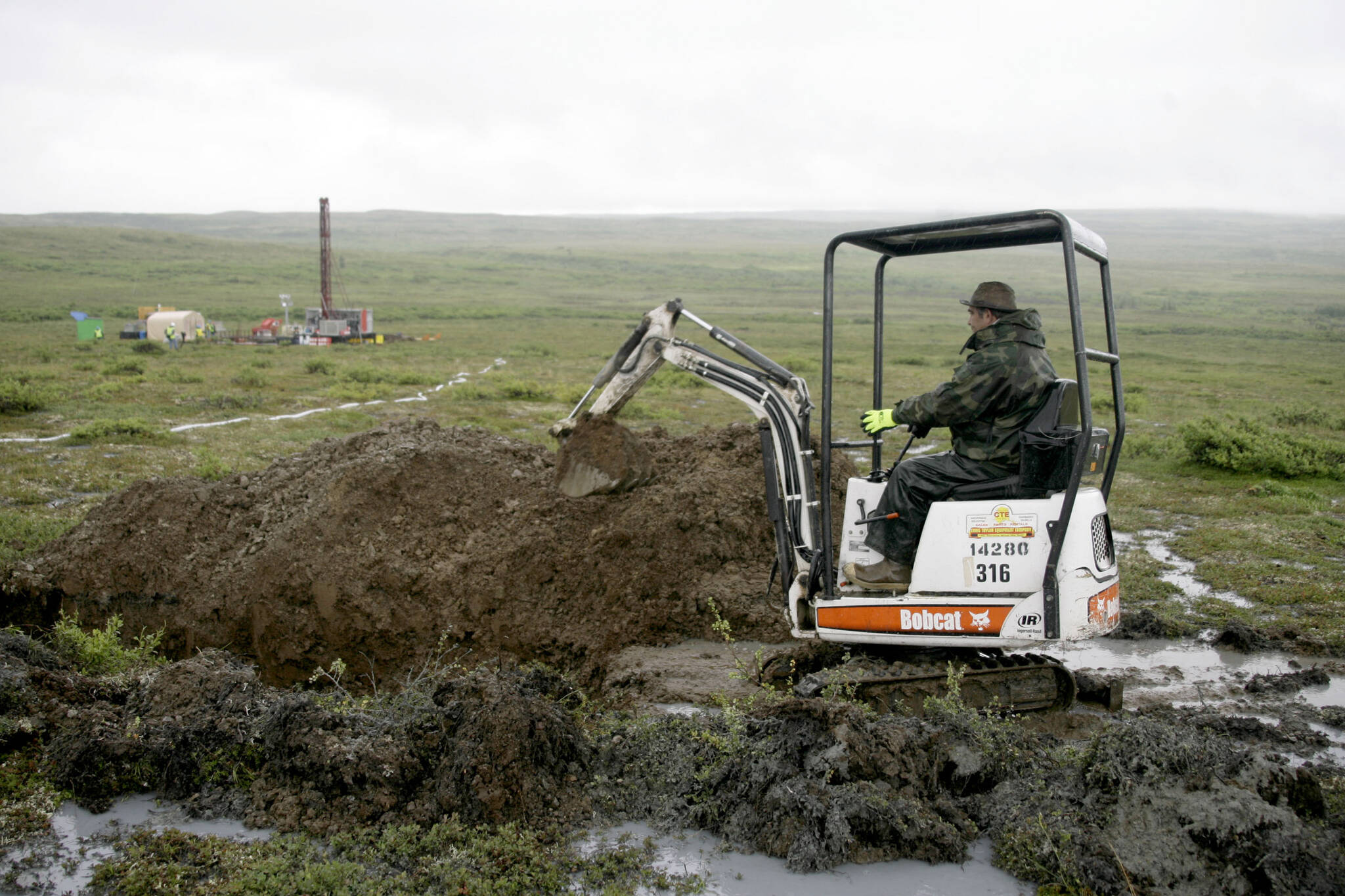The U.S. Environmental Protection Agency took an unusually strong step Tuesday and blocked a proposed mine heralded by backers as the most significant undeveloped copper and gold resource in the world because of concerns about its environmental impact on a rich Alaska aquatic ecosystem that supports the world’s largest sockeye salmon fishery.
The move, cheered by Alaska Native tribes and environmentalists and condemned by some state officials and mining interests, deals a heavy blow to the proposed Pebble Mine. The intended site is in a remote area of southwest Alaska’s Bristol Bay region, about 200 miles (322 kilometers) southwest of Anchorage.
It’s accessible only by helicopter and snowmobile in winter, developer Pebble Limited Partnership said in a permit application with the U.S. Army Corps of Engineers. As proposed, it called for a mining rate of up to 73 million tons a year.
An appeal by the Pebble partnership of a separate rejection of a key federal permit is unresolved.
In a statement, Pebble Limited Partnership CEO John Shively called the EPA’s action “unlawful” and political and said litigation was likely. Shively has cast the project as key to the Biden administration’s push to reach green energy goals and make the U.S. less dependent on foreign nations for such minerals.
The Pebble Limited Partnership is owned Canada-based Northern Dynasty Minerals Ltd.
The Pebble deposit is near the headwaters of the Bristol Bay watershed, which supports a bounty of salmon “unrivaled anywhere in North America,” according to the EPA.
Tuesday’s announcement marks only the 14th time in the roughly 50-year history of the federal Clean Water Act that the EPA has flexed its powers to bar or restrict activities over their potential impact on waters, including fisheries. EPA Administrator Michael Regan said his agency’s use of its so-called veto authority in this case “underscores the true irreplaceable and invaluable natural wonder that is Bristol Bay.”
The veto is a victory for the environment, economy and tribes of Alaska’s Bristol Bay region, which have fought the proposal for more than a decade, said Joel Reynolds, western director and senior attorney with the Natural Resources Defense Council.
The mine would have jeopardized the region’s salmon fishery, which brings 15,000 jobs to the area and supplies about half the world’s sockeye salmon, Reynolds said. The 2022 harvest was more than 60 million fish, state officials reported last year.
“It’s a victory for science over politics. For biodiversity over extinction. For democracy over corporate power,” Reynolds said.
The EPA, citing an analysis by the Army Corps of Engineers, said discharges of dredged or fill material to build and operate the proposed mine site would result in a loss of about 100 miles of stream habitat, as well as wetlands.
The Pebble partnership has maintained the project can coexist with salmon. The partnership’s website says the deposit is at the upper reaches of three “very small tributaries” and expresses confidence any impacts on the fishery “in the unlikely event of an incident” would be “minimal.”
Republican Alaska Gov. Mike Dunleavy said the EPA’s veto was a dangerous precedent that could affect future development in the state, while state Attorney General Treg Taylor called the agency’s action “legally indefensible.”
“Alarmingly, it lays the foundation to stop any development project, mining or non-mining, in any area of Alaska with wetlands and fish-bearing streams,” Dunleavy said.
Alaska Republican Sen. Lisa Murkowski said she opposed the mine but that the EPA’s veto shouldn’t be allowed to jeopardize future mining operations in the state.
“This determination must not serve as precedent to target any other project in our state and must be the only time EPA ever uses its veto authority under the Clean Water Act in Alaska,” Murkowski said in a statement.
Washington Democratic Sen. Maria Cantwell called the EPA’s action “the final nail in the coffin for the Pebble Mine” and the culmination of a hard fought battle.
“Now, we will have a thriving Bristol Bay salmon run for generations to come,” she said.
Tribes in the Bristol Bay region in 2010 petitioned the EPA to protect the area under the federal Clean Water Act. Alannah Hurley, executive director of United Tribes of Bristol Bay, said that to call the EPA announcement “welcome news is an understatement.”
Tim Bristol, executive director with the group SalmonState, lauded the EPA’s decision, saying it “may be the most popular thing the federal government has ever done for Alaska.”
The EPA’s decision is the latest in a yearslong back-and-forth over the project that has spanned administrations.
Leila Kimbrell, executive director for the Resource Development Council for Alaska Inc., called the decision “a dangerous abuse of power and federal overreach.” The National Mining Association, citing high demand for minerals and fragile global supply chains, said domestic mining has “never been more important.” It said EPA’s decision is “in stark contrast to national and global realities.”

